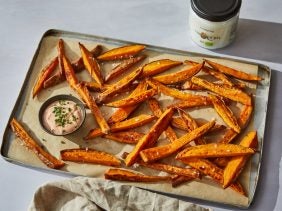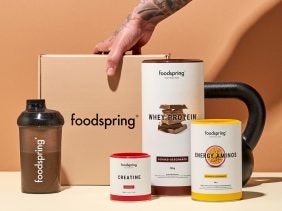A Quick Guide to Balanced Vegan Nutrition
 ©foodspring
©foodspring
Already following a vegan diet, or want to get started, but still unsure how and if you can cover all your nutrient needs? Find out which micronutrients are particularly important for a balanced vegan nutrition plan and other useful tips!
Raising awareness of your environmental impact, promoting animal welfare, the health benefits, or just getting more variety in your diet: there are many good reasons to eat vegan. Or at least use plant foods as the basis of your diet.
Their nutrients are not better or worse, they’re just different. While animal-based foods are sometimes higher in minerals and protein, healthy vegan foods often score high on antioxidants, vitamins, and high-quality amino acids.
Vegans usually get more than enough of the vitamins A, B1, C, and E. Folic acid, potassium, and magnesium are also covered in a balanced diet. On top of that, there are many fortified foods that can help prevent, for example, a vitamin B2, vitamin B12, or vitamin D deficiency.
Our tip: There’s lots of myths about living vegan and we’ve debunked three of the most common.
Vegan doesn’t always mean healthy
It always depends on what you eat. Vegan nutrition is not automatically healthy: fatty meat alternatives, sugary snacks, highly processed foods, and fast food: all of these are also available in vegan and still unhealthy.
A balanced diet always follows the same principles: Fresh fruits and vegetables, complex carbs from whole grains, and high-quality protein and healthy fats form the foundation. The only difference between vegan, vegetarian, and omnivorous diets is where the nutrients come from.
Is It Possible to Cover My Nutrition Needs with Vegan Food?
In principle, yes. Under one condition: You must eat a balanced vegan diet and cook for yourself sometimes. Sounds like a lot of work? Maybe at first, but changing your routine and establishing healthy habits always takes time.
Once you know what food choices taste best for you and fit your daily routine, you’ll quickly have a few favorite nutrient-rich recipes that contribute to a balanced supply of macro- and micronutrients. To get yourself started, check out our free recipe database with over 200 healthy vegan recipes.
What Nutrients are Crucial for Vegan Nutrition?
The crucial nutrients in vegan diets tend to be those that are found primarily in animal foods or, like vitamin D, are rarely high enough even in other diets. The most common important nutrients in vegan diets are profiled below, complete with food lists that will help you get enough of them.
Good to know: Vitamins and minerals do not originally come from animals. Animals, like humans, absorb them through their food. In the case of beef, which is known for its high vitamin B12 content, the vitamin B12 comes from what they eat, and in the case of meat from factory farms, it often comes from dietary supplements. Since cows in factory farms don’t eat enough grass, vitamin B12 is added to their feed.
Essential micronutrients in a vegan diet: overview
Which nutrients are critical in a vegan diet depends primarily on your needs and other individual factors.
Our tip: Keep a food diary for a month to see how balanced your diet is.
On average, plant foods either contain slightly less of the nutrients listed below, or the nutrient in question isn’t absorbed as well in the gastrointestinal tract according to current research. The following micronutrients are frequently the most important to pay attention to in vegan diets.
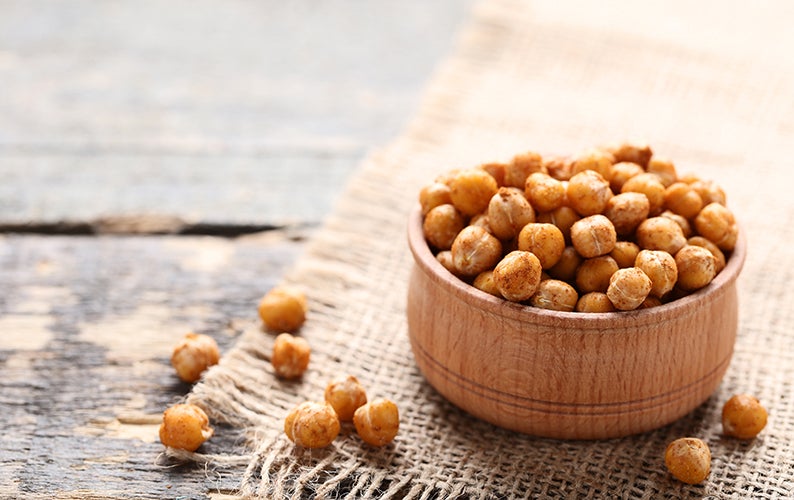
Calcium
Calcium contributes to the maintenance of your bones and teeth, as well as various other elementary metabolic functions. The body stores larger quantities of calcium than of any other mineral. The NHS recommends 700 mg of calcium per day from calcium-rich foods for adults.
More about Calcium and other essential minerals
10 vegan foods with calcium:
- Algae: brown algae, red algae, wakame (dried).
- Chia seeds
- Figs (dried)
- Chickpeas
- Almonds
- Mineral water with more than 150 mg calcium per liter
- Kale
- Arugula
- Sesame seeds
- Tofu
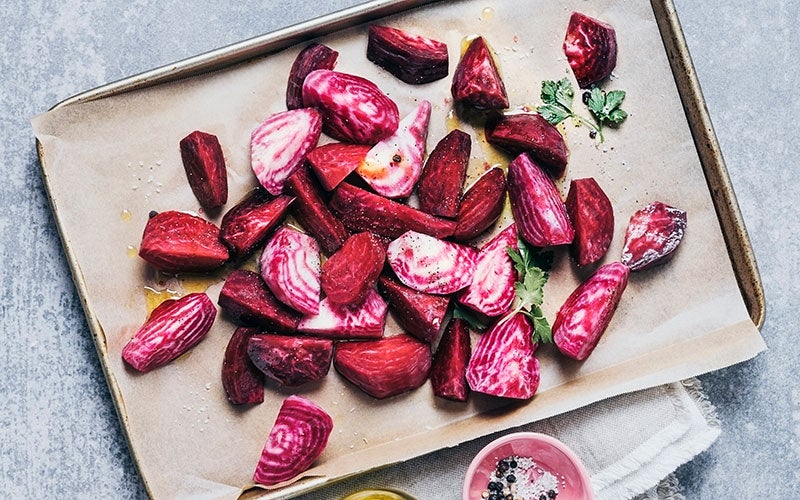
Iron
Iron contributes to your immune system, energy metabolism, and cognitive functions. It’s also essential for oxygen transport and the formation of red blood cells.
According to the NHS, a guideline for daily iron intake for adults is about 14 mg of iron. For athletes and pregnant women, the amount may be higher.
Good to know: Caffeine inhibits iron absorption, while vitamin C promotes it. That’s why it’s important to drink coffee or black tea at least one hour after meals with iron-rich foods and make sure that you always get a serving of vitamin C as well.
10 Vegan Foods with Iron
- Hemp seeds
- Pumpkin seeds
- Lentils
- Kale
- Red beets
- Sesame seeds
- Tofu or other soy products, especially soy flour
- Thyme
- Wheat bran
- Whole grains
Iodine
Iodine contributes to healthy skin, energy metabolism, thyroid, nervous system, and much more. Iodine deficiency is not only a problem for vegan diets but is also found in people on a wide variety of diets.
Click here for more about iodine
The iodine content of our food depends on the iodine content of the soil in which it is planted. That’s why iodized salt has become popular in places with little iodine. Typical salad seaweeds such as nori or wakame also contain iodine, but probably don’t end up in your diet often enough to meet your needs.
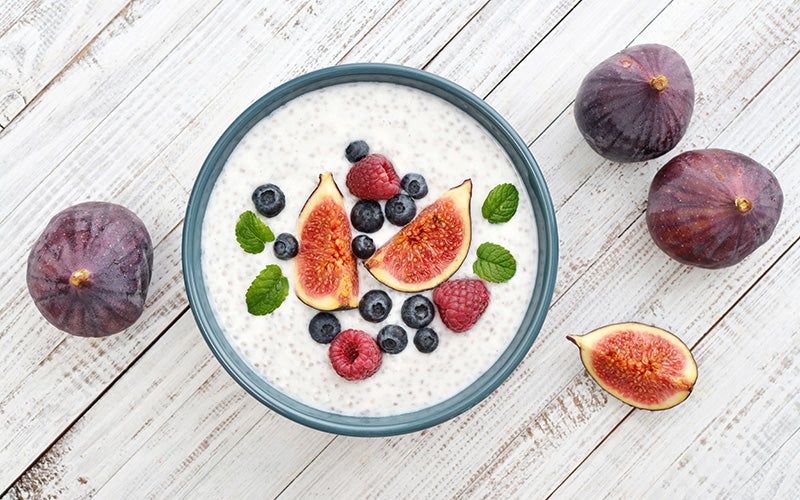
Omega-3 Fats
Vegan diets are usually rich in nuts and nut butters, which are full of healthy fats. If you pay some attention to which nuts you eat, it’s easy to get enough omega-3 fats. The problem with a vegan diet is usually not about having too little omega-3 fatty acids, but getting the ratio of omega-6 to omega-3 fats right instead.
DHA and EPA are omega-3 essential fatty acids and both contribute to normal heart function. DHA is also essential for normal brain function and normal vision. Because they are found in plant foods only in small amounts or as their precursor, alpha-linolenic acid (ALA), it may make sense to get your omega-3s through dietary supplements to prevent deficiencies.
The good news is that DHA and EPA are found in microalgae. Instead of eating fish or supplementing with fish oil, you can take omega-3 capsules made from algae oil. Our foodspring omega-3 capsules from algae oil help keep up your supply of healthy fats. In high-quality vegan softgels – with no gelatine or other superfluous additives.
try foodspring’s Omega-3 capsules.
That said, there are some vegan foods that can help meet your omega-3 needs.
Vegan foods with omega-3s in the form of ALA:
- Linseed oil
- Hemp oil
- Walnut oil
- Canola oil
- Chia seeds
- Fortified foods
Selenium
The same is true for selenium as for iodine: the more selenium-rich the soil, the more selenium in the foods grown on it. The best vegan foods with selenium are Brazil nuts and porcini mushrooms.
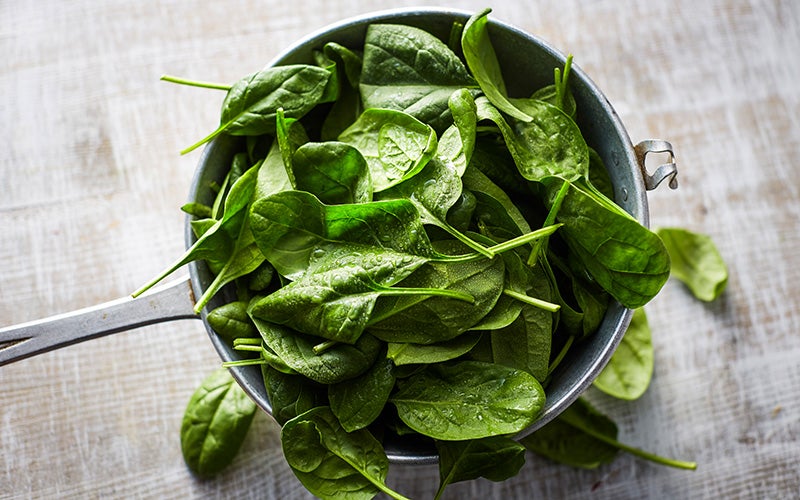
Vitamin B2
Vitamin B2 is better known from ingredient lists as riboflavin. According to the NHS, the reference value of vitamin B2 is about 1.2 mg daily. Riboflavin fulfills numerous functions in your metabolism: it contributes to the maintenance of normal energy levels and iron metabolism, the reduction of oxidative stress and fatigue, and normal nerve function and vision.
Despite the common belief that B vitamins are practically only found in meats and dairy products, there are many plant-based foods that make up a balanced vegan diet and are good sources of vitamin B2.
10 vegan foods with Vitamin B2
- Broccoli
- Mushrooms
- Cashews
- Yeast
- Kale
- Almonds
- Sunflower seeds
- Spinach
- Pumpkin seeds
- Any whole grains
Vitamin B12
Even a well-planned vegan diet often cannot provide enough vitamin B12 without supplementation. Vitamin B12, also known as cobalamin, is usually produced by the bacteria and microorganisms that animals take in through their feed – which is usually artificially enriched, especially in factory farms. Some animals, and humans, produce B12 with the help of their own bacteria in the gastrointestinal tract.
Find out more about this B12 vitamin and its functions, as well as symptoms and causes of a deficiency !
This lack of vitamin B12 in plant foods is why it’s the one crucial nutrient in a vegan diet that you should definitely take regularly as a supplement. It’s best to have your B12 levels checked once a year so you know when to take action against a deficiency.
In everyday life, eating fortified foods such as plant-based dairy alternatives can also help prevent vitamin B12 deficiency.
Vitamin D
Vitamin D intake is not significantly worse or better for vegans than omnivores. Only about 10-20% of vitamin D needs are met through your diet. The remaining 80-90% is produced by the body itself.
But that production only works if you get enough sun exposure. In the months from October to March, this is usually not the case in northern latitudes. The best way to avoid a deficiency is to consistently supplement during the darker months. Find out everything you need to know about vitamin D in our article and your daily requirements.
By the way, there are foods with vitamin D, but they’re usually not vegan. Top vitamin D foods include herring, trout, and salmon.
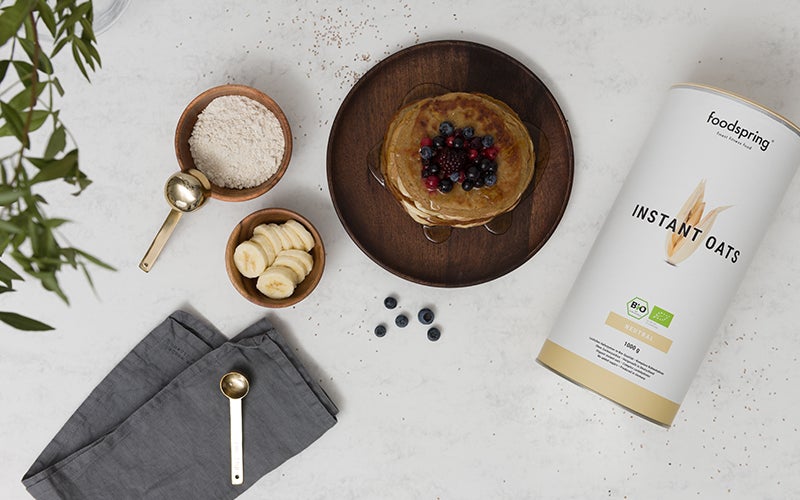
Zinc
Your body is slightly less able to absorb the zinc in plant foods than animal sources. Phytates from legumes, whole grains, and oilseeds inhibit absorption because they bind minerals, making them inaccessible for your body. Tannins in tea and coffee, as well as alcohol, also impede the absorption of zinc.
Our tip: By soaking legumes, linseed, and similar foods for a few hours before eating and then rinsing them well, you can reduce their phytate content and help your body absorb the zinc. Combining them with protein or citric acid can also improve zinc absorption.
The extra effort is worth it. Zinc is necessary all over your body, fulfilling various important metabolic functions. To make your life easier, we’ve combined zinc with magnesium in 100% vegan capsules. This way, you cover all your needs in once !
10 vegan foods with zinc
- Cashews
- Oatmeal
- Pumpkin seeds
- Flaxseeds
- Lentils
- Pecans
- Quinoa
- Soybeans
- Whole grain products
- Wheat bran
Vegan Protein Deficiency? Not on Our Watch!
Can a healthy vegan diet meet your protein needs? Absolutely! The key here is having a varied diet with enough different protein sources so you cover all the essential amino acids. We’ve compiled the best plant-based protein sources for you here.
If you think pancakes, pasta, pizza, and all other fun meals are a thing of the past when you go vegan, you’re wrong. In our Smart Cooking section, we’ve gathered delicious ingredients and mixes with extra protein and fitness-ready nutritional profiles. Quick to prepare, delicious, and definitely high in protein – and on top of that, we’ve got tons of additional vegan recipes!
Vegan Foods for Muscle Building
Eggs, yogurt, and cottage cheese aren’t options for high-protein snacks on a plant-based diet. Dishes that are quick to make and snacks available to go tend to be high-carb but low-protein meals. That’s why preparation is half the battle. Our vegan protein snacks are easy to take with you and eat whenever you feel like it. Guaranteed to taste better than any cake from the bakery next door.
What Supplements are Useful for Vegans?
It depends on your nutrient status and your needs. Are you already too low on one nutrient, do you need to improve on a critical nutrient, or do you want to prevent a nutrient deficiency?
Factors such as age, gender, overall health, and specific health conditions also influence the decision to supplement with prescription or over-the-counter products.
Our tip: Always determine your actual needs and check how much you’re already getting before you go for nutritional supplements. Because especially with minerals, taking a lot does not always help a lot. Taking too much of one nutrient can negatively influence the absorption of another. When in doubt, check your nutrient status with a nutritionist and get personalized advice on whether vitamin B, vitamin D, or any minerals are an issue.
Certain your B12 intake isn’t enough, that you need an extra portion of magnesium after training, or that you don’t eat enough omega-3 fatty acids? Make sure to buy supplements that help you improve your nutrient profile without exceeding daily nutrient reference values. They’re listed as percentages on the packaging.
Conclusion
- Most essential nutrients can be covered with a balanced vegan diet using nothing but natural plant foods.
- One nutrient you should consider supplementing is vitamin B12.
- A varied plant-based diet and a combination of different food groups are the foundation for a healthy nutrition plan.
- Overdosing doesn’t help. Check your nutrient profile with a doctor instead of taking too many supplements.
Sources for this article
We at foodspring use only high-quality sources, including peer-reviewed studies, to support the facts within our articles. Read our editorial policy to learn more about how we fact-check and keep our content accurate, reliable, and trustworthy.


























